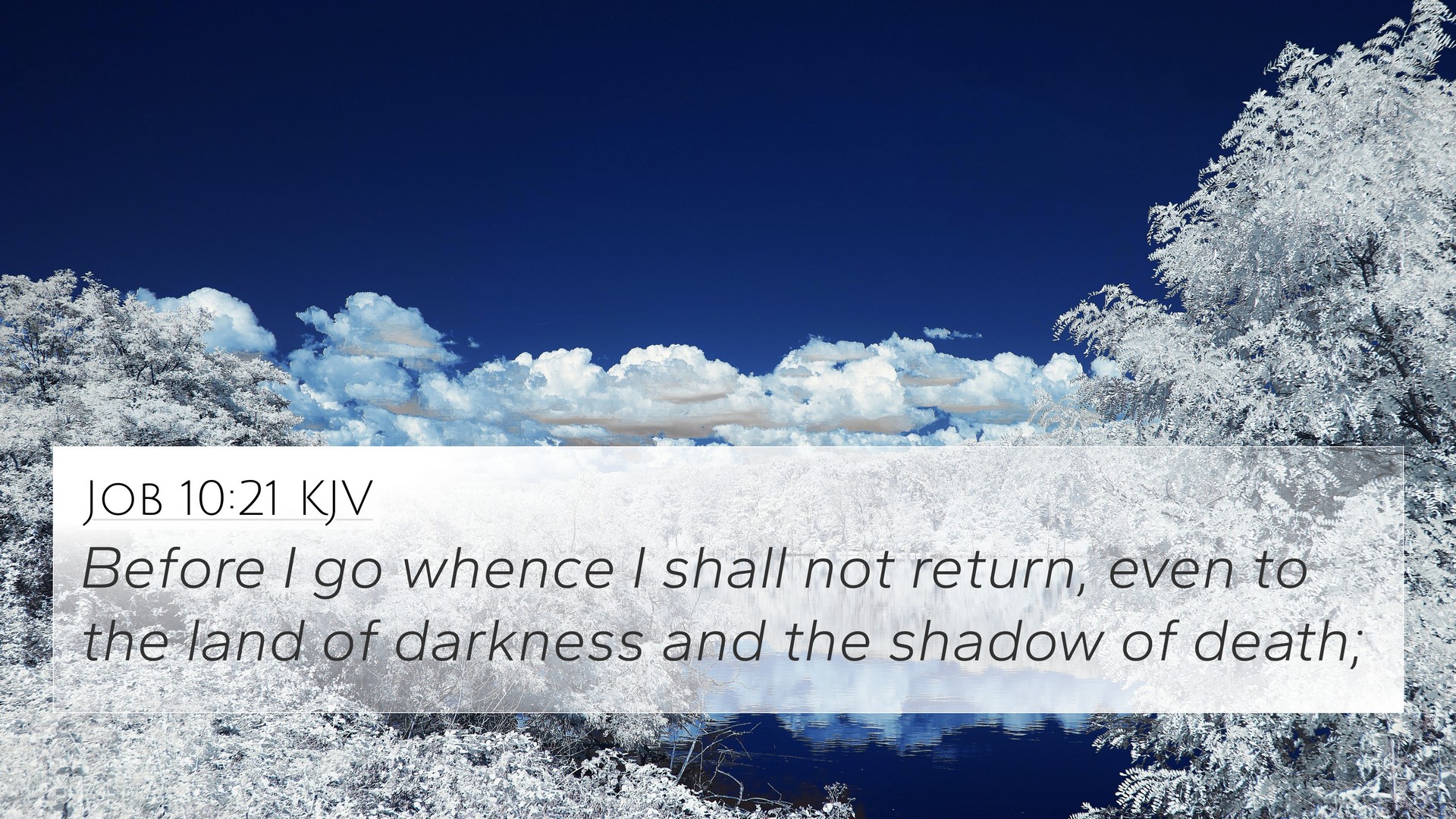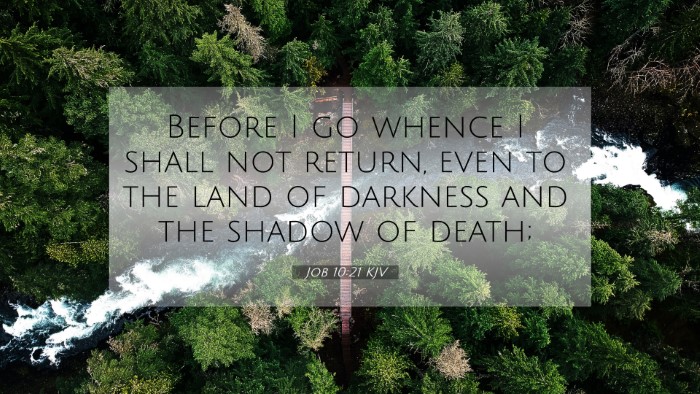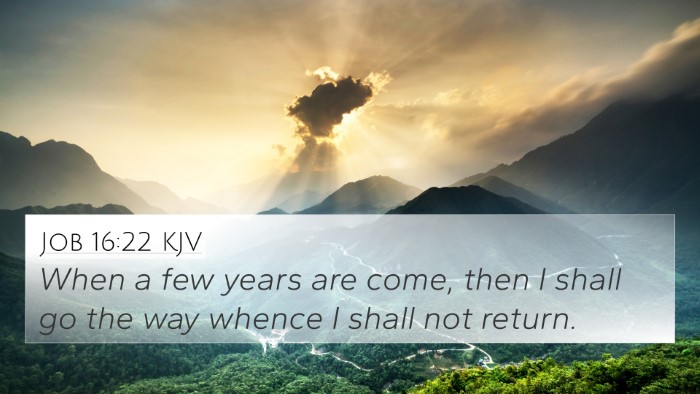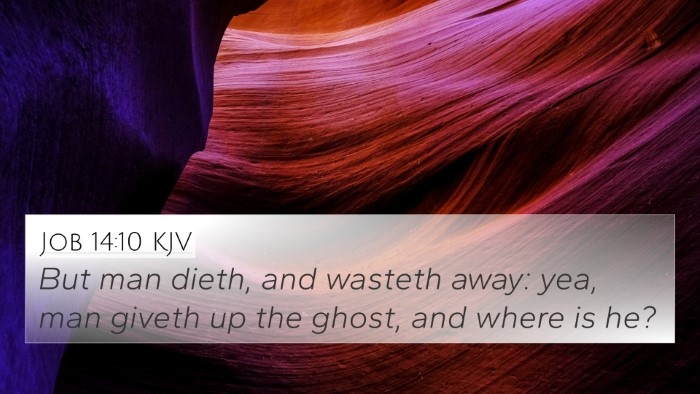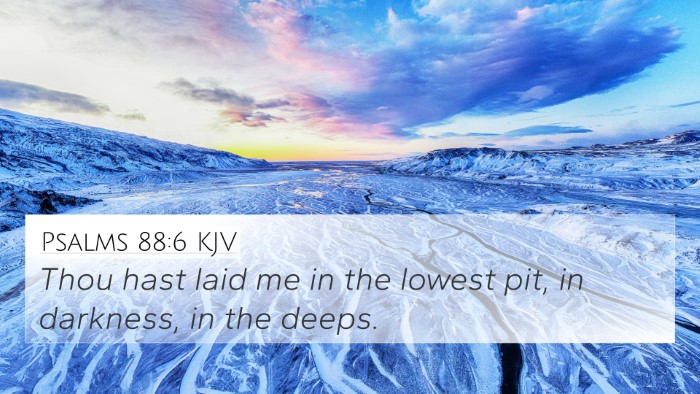Old Testament
Genesis Exodus Leviticus Numbers Deuteronomy Joshua Judges Ruth 1 Samuel 2 Samuel 1 Kings 2 Kings 1 Chronicles 2 Chronicles Ezra Nehemiah Esther Job Psalms Proverbs Ecclesiastes Song of Solomon Isaiah Jeremiah Lamentations Ezekiel Daniel Hosea Joel Amos Obadiah Jonah Micah Nahum Habakkuk Zephaniah Haggai Zechariah MalachiJob 10:21 Similar Verses
Job 10:21 Cross References
Before I go whence I shall not return, even to the land of darkness and the shadow of death;
Uncover the Rich Themes and Topics of This Bible Verse
Listed below are the Bible themes associated with Job 10:21. We invite you to explore each theme to gain deeper insights into the Scriptures.
Job 10:21 Cross Reference Verses
This section features a detailed cross-reference designed to enrich your understanding of the Scriptures. Below, you will find carefully selected verses that echo the themes and teachings related to Job 10:21 KJV. Click on any image to explore detailed analyses of related Bible verses and uncover deeper theological insights.
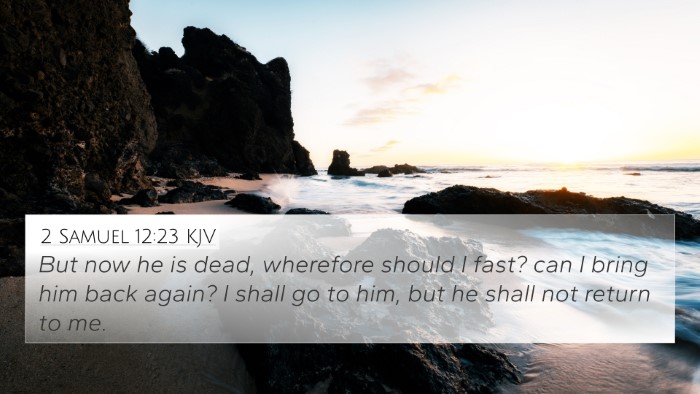
2 Samuel 12:23 (KJV) »
But now he is dead, wherefore should I fast? can I bring him back again? I shall go to him, but he shall not return to me.
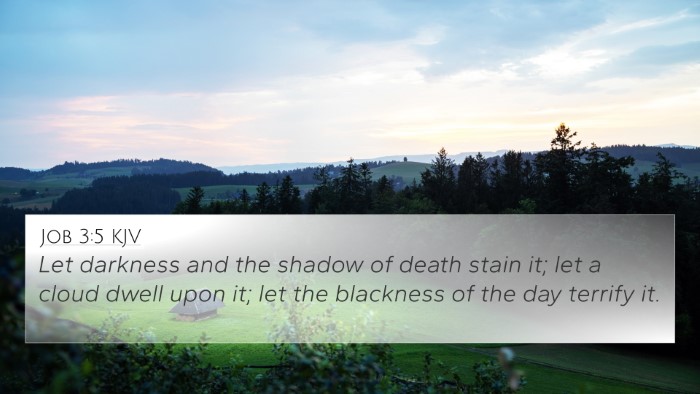
Job 3:5 (KJV) »
Let darkness and the shadow of death stain it; let a cloud dwell upon it; let the blackness of the day terrify it.
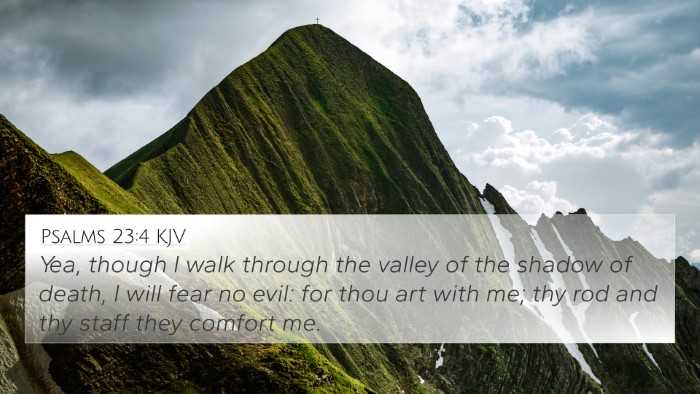
Psalms 23:4 (KJV) »
Yea, though I walk through the valley of the shadow of death, I will fear no evil: for thou art with me; thy rod and thy staff they comfort me.
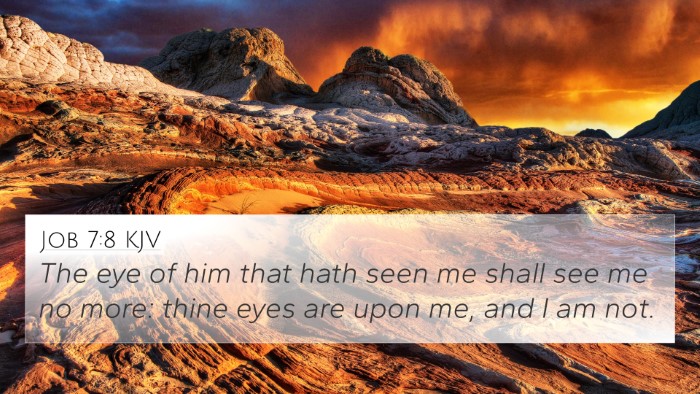
Job 7:8 (KJV) »
The eye of him that hath seen me shall see me no more: thine eyes are upon me, and I am not.
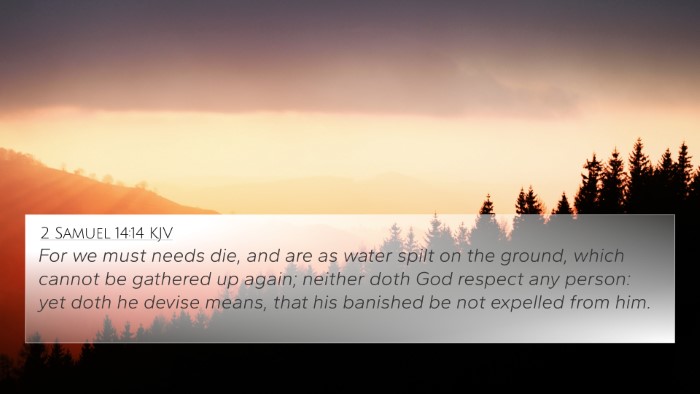
2 Samuel 14:14 (KJV) »
For we must needs die, and are as water spilt on the ground, which cannot be gathered up again; neither doth God respect any person: yet doth he devise means, that his banished be not expelled from him.
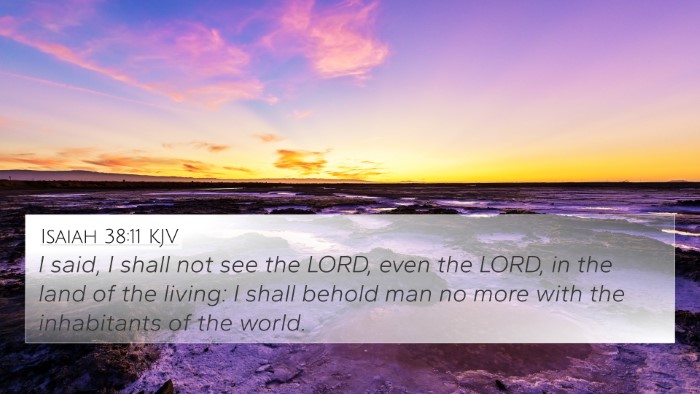
Isaiah 38:11 (KJV) »
I said, I shall not see the LORD, even the LORD, in the land of the living: I shall behold man no more with the inhabitants of the world.
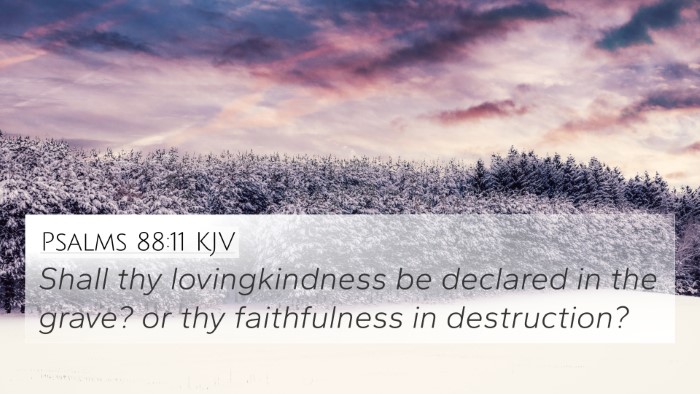
Psalms 88:11 (KJV) »
Shall thy lovingkindness be declared in the grave? or thy faithfulness in destruction?
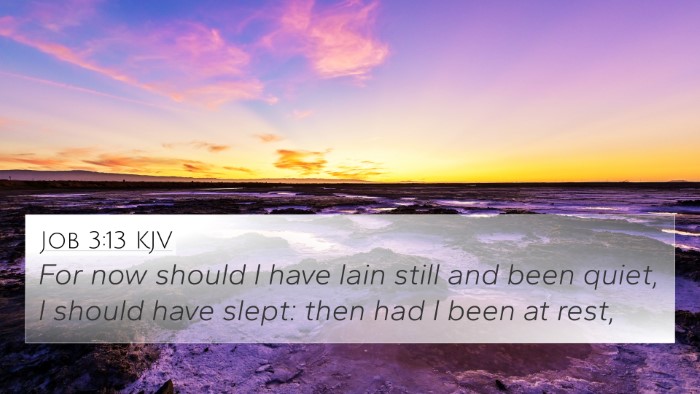
Job 3:13 (KJV) »
For now should I have lain still and been quiet, I should have slept: then had I been at rest,
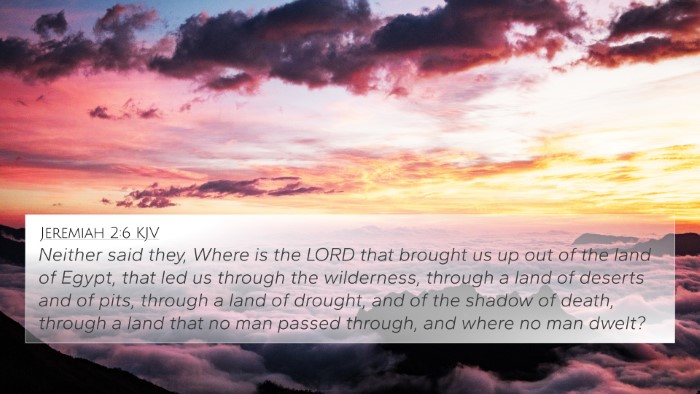
Jeremiah 2:6 (KJV) »
Neither said they, Where is the LORD that brought us up out of the land of Egypt, that led us through the wilderness, through a land of deserts and of pits, through a land of drought, and of the shadow of death, through a land that no man passed through, and where no man dwelt?
Job 10:21 Verse Analysis and Similar Verses
Understanding Job 10:21
Job 10:21 states: "Before I go whence I shall not return, even to the land of darkness and the shadow of death." This verse captures a profound moment in Job's discourse as he grapples with the existential weight of his suffering and impending death.
Contextual Overview
Job is embroiled in deep lamentation and questioning of God's justice. This particular verse reflects Job's awareness of his mortality and the sense of isolation that comes with it. The tone is one of sorrow and apprehension, where Job recognizes his current plight and the shadowy realm that awaits him.
Commentary Insights
-
Matthew Henry:
Henry interprets this verse as Job’s acknowledgment of his current suffering as reflective of a profound human condition—our inevitable demise. He emphasizes the imagery of "darkness and the shadow of death," which is used to illustrate not just physical death but a state devoid of hope and divine presence.
-
Albert Barnes:
Barnes elaborates that Job is confronting the reality of his fate. The contrast between life (“the land of the living”) and death (the “land of darkness”) serves to highlight a significant theological point: the struggle between human suffering and the quest for understanding God's design.
-
Adam Clarke:
Clarke suggests that this verse reflects Job’s desire for a mediator between himself and God, highlighting a universal yearning for reconciliation in the face of suffering. He embodies the sentiment that humanity’s plight necessitates divine attention and mercy.
Thematic Analysis
The themes of mortality, divine justice, and human suffering intricately interweave throughout this verse. Job's introspection serves as a lens through which readers can explore key theological elements such as the nature of God, the meaning of suffering, and the human experience of despair.
Cross-References and Connections
The following verses provide meaningful connections to Job 10:21, enhancing the understanding of its context and themes:
- Psalm 23:4: "Yea, though I walk through the valley of the shadow of death, I will fear no evil: for thou art with me." – A parallel in the exploration of darkness and divine presence.
- Ecclesiastes 3:20: "All go unto one place; all are of the dust, and all turn to dust again." – This verse emphasizes the inevitability of death.
- Job 14:1-2: "Man that is born of a woman is of few days and full of trouble. He cometh forth like a flower, and is cut down." – Another reflection of Job's grief over human frailty.
- Hebrews 9:27: "And as it is appointed unto men once to die, but after this the judgment." – This verse affirms the certainty of death, paralleling Job's recognition of his fate.
- Isaiah 25:8: "He will swallow up death in victory; and the Lord God will wipe away tears from off all faces." – This provides a contrast to Job's despondent outlook with hope for the future.
- Psalm 88:6-7: "Thou hast laid me in the lowest pit, in darkness, in the deeps. Thy wrath lieth hard upon me." – This reveals the emotional turmoil akin to Job's lament.
- Job 3:11-12: "Why died I not from the womb? Why did I not give up the ghost when I came out of the belly?" – Job's despair over life and death resonates with the themes in Job 10:21.
Using Bible Cross-References
To gain a deeper understanding of Job 10:21, employing tools for Bible cross-referencing can illuminate variations on the central themes. Consider exploring a Bible concordance or a cross-reference Bible study to find related passages that enrich our comprehension of Job’s experience.
Conclusion
Job 10:21 remains a poignant reflection of the human condition, encapsulating feelings of despair and the quest for meaning amid suffering. The connections with other scriptures not only enhance our interpretation but also invite an inter-Biblical dialogue that encourages deeper theological reflection.
